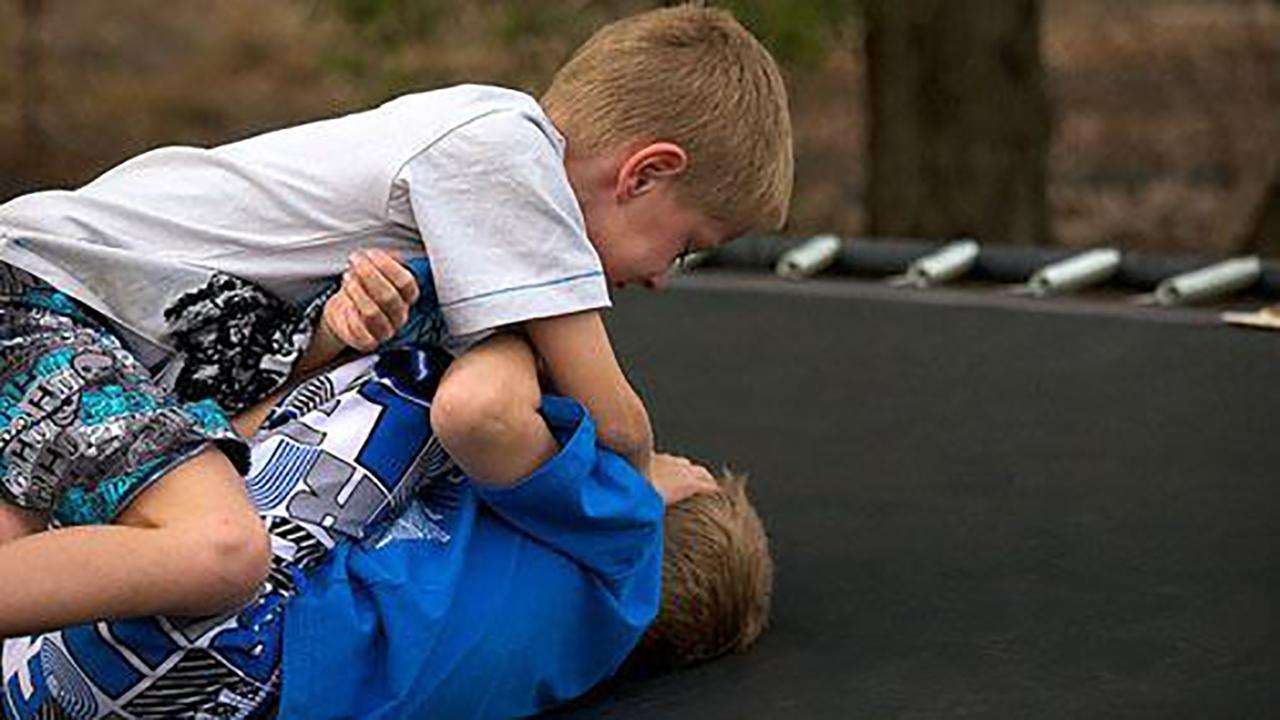In the past few days, there have been several theft incidents in the author's community, although it is not a valuable item, it is some peanuts and sweet potatoes and bacon dried by others, but the owners are still very angry, and later set up an ambush, and caught several twelve- or thirteen-year-old children, when they were caught, the children still had a hippie smile, which was indeed disappointing. The parents of these children are also full of indifference, saying something like "children are still young and don't understand things", and I also shake my head when I hear it.

In the history of our country, we have always attached great importance to the education of the next generation, especially in the aspect of self-cultivation in the world.
Zhuge Liang, a famous minister of the Three Kingdoms, not only bowed down all his life and abstained from self-denial, but also through the short 86 words of the "Book of Commandments", he taught his children Zhuge Zhan to calm down and constantly improve himself, not to indulge himself in order to cultivate noble sentiments, "non-indifferent to the clear will, non-tranquility can not go far."
Kou Zhun, the prime minister of the Northern Song Dynasty, died early when he was a child, and his family was poor, and his mother worked hard to weave cloth for money every day to live a life, while teaching Kou Zhun to read. Later, Kou Zhun passed the entrance examination, and Kou Zhun's mother was seriously ill at the time, and heard that her son was admitted to the jinshi, so he handed over a painting he had painted before to his family Liu Ma, and told Liu Mama that if Kou Zhun went on a crooked road in the future, she would give him this painting. Later, Kou Zhun became the prime minister, and on his birthday one year, he invited two opera classes to prepare a feast. Mama Liu then took Kou Mu's painting to Kou Zhun and asked him to open it on the spot. I saw a painting of "Cold Window Lesson Picture", which also has a poem on it, which means that I hope that he will remember that the original intention of becoming an official is for the people, and even if he has money, he must maintain a good family style of thrift and thrift. Kou Zhun was ashamed and embarrassed in the face of his mother's testament, and tears welled up, and immediately ordered the banquet to be withdrawn, introspected and reformed, and eventually became a generation of sages.
The education policy of zeng guofan, a major minister of the Qing Dynasty, is very classic and practical, and can be divided into three sentences in general, diligent and thrifty, strict self-discipline, and clear reading. He educated his son Zeng Jize to be extravagant and lascivious, eat and lazy to do is the root of corruption of virtue, but also an important factor in bringing instability to the family; and Zeng Guofan himself is also practicing, never being generous, working on time every day, never sleeping lazily, and making a good example for his children; later, because Zeng Jize did not take the meritorious name several times, Zeng Guofan let him study abroad, because Zeng Guofan believed that reading was mainly reasonable, not necessarily to get a meritorious name, Zeng Jize did not disappoint him, learned a fluent English back, Later, in negotiations with Tsarist Russia, he became an important assistant to Zeng Guofan.
Ji Xiaolan summed up his godchildren's policy as "four precepts and four yi", four precepts: Yan Qi, laziness, luxury, pride; four Yi: diligent reading, respect for teachers, love for the public, and cautious eating. Yan Qi, that is, late rise, this is also considered by Zeng Guofan to be the "fierce virtue" of the loser; laziness is nothing, luxury is small is a loser, the big is the subjugation of the country, the Shang Dynasty's wine pond meat forest, the Jin Dynasty's Wang Kaishi Chongdou rich, the late Tang Dynasty's extravagant pleasures are all good evidence; pride is self-destruction. Diligent reading, reading can change a person's temperament, but also a way to improve the fate of ancient China; respect for teachers and love for the people, that is, respect for teachers, love and gratitude; cautious eating, refers to the regularity of life, and many of the current chronic diseases of wealth and wealth are caused by irregularities in life.
A person's life is often closely related to the education that this person receives, there are both moral integrity and ability, there are also discredited, how to educate their children, or we can get some inspiration from the wisdom of the ancients.